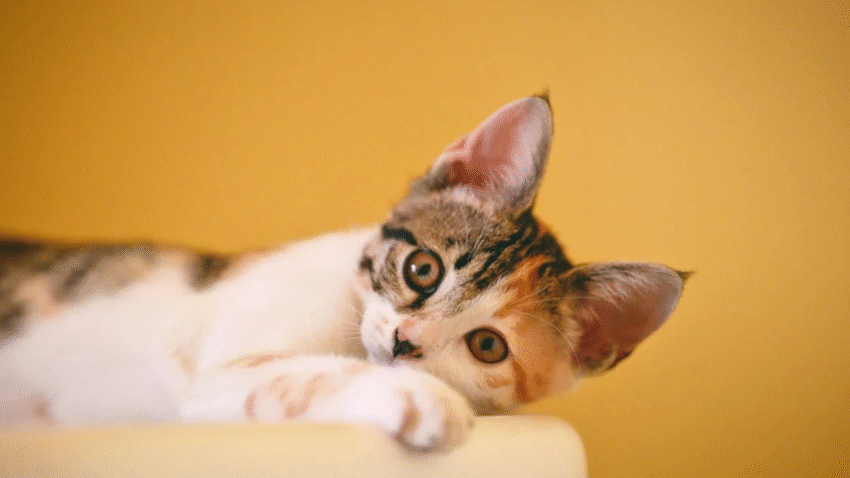Introduction
Is your cat meowing constantly and driving you up the wall? While vocalization is a normal form of feline communication, excessive meowing can become a frustrating behavior for many cat owners. In this guide, you’ll learn how to stop your cat from meowing excessively using simple, humane methods based on understanding and training.
Whether your cat is trying to tell you something or just enjoys being loud, you’ll find the practical tips you need to restore peace to your home.
Why Cats Meow Excessively
Cats meow for different reasons—and identifying the root cause is the first step in solving the problem. Unlike wild cats, domestic cats meow primarily to communicate with humans, not each other.
Here are common causes of excessive meowing:
- Hunger or thirst: Many cats will meow persistently when their food bowl is empty.
- Attention-seeking: Bored or lonely cats may use meowing to get your focus.
- Stress or anxiety: Changes in the home, like moving or a new pet, can trigger vocalization.
- Health issues: Conditions like hyperthyroidism, cognitive decline, or urinary problems can lead to increased vocalization.
- Mating behavior: Unspayed or unneutered cats may yowl to attract mates.
- Habit: If meowing has worked in the past, your cat may simply have learned that it gets results.
Understanding your cat’s motivation will help you choose the right solution.
Step-by-Step Guide to Reduce Excessive Meowing
Follow these steps to reduce your cat’s meowing in a positive, effective way.
1. Rule Out Medical Issues
Before assuming it’s behavioral:
- Visit your vet for a full check-up.
- Ask about conditions like hyperthyroidism, kidney disease, or cognitive dysfunction in older cats.
- Any sudden change in vocalization should always be investigated first.
💡 Tip: If your cat meows while using the litter box or seems in distress, seek medical help immediately.
2. Don’t Reward Meowing With Attention
- Avoid talking, petting, or feeding your cat while they’re meowing.
- Wait for silence, then offer a treat or attention.
- Be consistent—even negative attention can reinforce the behavior.
This teaches your cat that quiet behavior gets rewarded, not noise.
3. Feed on a Schedule
- Use fixed feeding times rather than free-feeding or feeding “on demand.”
- Ignore meowing before meals—don’t give in early or you’ll reinforce it.
- Try an automatic feeder to eliminate the association between you and food delivery.
A predictable feeding schedule reduces anxiety and begging behavior.
4. Increase Play and Enrichment
A bored cat is often a noisy cat:
- Play 2–3 times a day with interactive toys like feather wands or laser pointers.
- Use puzzle feeders or treat-dispensing toys to mentally stimulate them.
- Provide window perches, cat trees, and climbing shelves to engage natural instincts.
Tired cats meow less—they’re too busy or content.
5. Use Positive Reinforcement
- Reward quiet behavior with treats, affection, or toys.
- If your cat is quiet for 10 seconds, reward them. Slowly increase the time.
- Be consistent: Everyone in your household must follow the same rules.
This encourages your cat to be silent more often over time.
6. Create a Calm Environment
Cats are sensitive to change:
- Keep routines consistent for feeding, cleaning, and play.
- Use calming diffusers like Feliway to reduce stress.
- Give your cat a safe, quiet space if your household is noisy or busy.
For anxious or recently relocated cats, patience and stability go a long way.
Common Mistakes to Avoid
Avoid these common pitfalls when addressing excessive meowing:
- Giving in to the noise
➤ Feeding, petting, or responding teaches your cat that meowing works. - Yelling or punishing
➤ Negative responses increase stress and can make the problem worse. - Inconsistent routines
➤ Cats thrive on predictability. Skipping meals or changing bedtimes can cause anxiety-driven meowing. - Ignoring new symptoms
➤ If your cat’s meowing changes suddenly or is accompanied by other symptoms, always consult a vet. - Underestimating their needs
➤ Lack of play, stimulation, or companionship can lead to vocalization out of boredom.
Extra Tips & Recommendations
Here are a few more expert strategies to quiet a vocal cat:
- Try clicker training: Reward your cat for being quiet on command.
- Use white noise machines to mask environmental triggers.
- Consider adopting a second cat if your cat is vocal from loneliness (but only if you’re ready).
- Set up a cozy nighttime space if your cat meows while you’re sleeping—especially helpful for kittens.
Also, if your cat is older and vocal at night, it could be a sign of cognitive decline. Talk to your vet about supplements or medications that can help.
Need help managing more cat behavior? Check out our guides on How to Train Your Cat to Come When Called or How to Calm an Anxious or Stressed Cat.
Conclusion
Excessive meowing can be annoying, but it’s your cat’s way of telling you something. By identifying the cause and responding with structure, training, and enrichment, you can reduce the noise and build a stronger bond with your feline friend.
🐾 Remember: patience, consistency, and compassion go a long way. Your cat isn’t trying to be difficult—they’re just trying to communicate.
